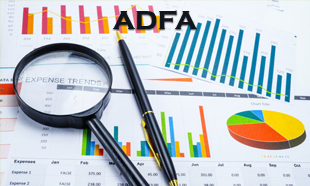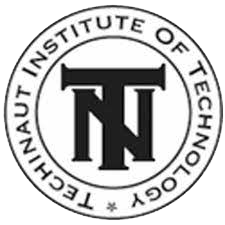ADVANCE DIPLOMA IN FINANCIAL APPLICATION
In today's dynamic financial landscape, proficiency in financial applications is paramount. Recognising this, BOSCOTECH, a Techinaut Institute of Technology franchise in Tarapur-Khelma, Cachar, Assam, offers a comprehensive one-year course: Advance Diploma in Financial Application (ADFA). ADFA prepares students for diverse roles in finance and accounting domains by covering fundamental concepts, software applications, and practical exercises. This article delves into the curriculum and significance of ADFA in shaping future finance professionals.
BASIC OF COMPUTER
The course commences with an exploration of the basic principles of computing. Students delve into the history and evolution of computers, understanding hardware components, software types, and their interplay. Through theoretical sessions and practical demonstrations, learners grasp the foundational concepts that underpin modern computing systems.
COMPUTER APPRECIATION
Understanding the broader implications of computing in financial sectors is crucial. Students gain insights into the impact of computers on various financial domains such as banking, accounting, and investment management. They analyse case studies and discuss the role of technology in transforming financial operations and decision-making processes.
COMPUTER ORGANIZATION
A deeper understanding of computer architecture and organisation is essential for aspiring finance professionals. This module delves into CPU structure, memory hierarchy, input/output systems, and peripheral devices. Hands-on activities and simulations aid students in comprehending the intricate workings of computer systems relevant to financial applications.
OPERATING SYSTEM
OS serve as the backbone of computer functionality. ADFA students explore the principles and functionalities of operating systems such as Windows and Linux, focusing on features relevant to financial applications. They learn about file management, security mechanisms, and customisation options, enabling them to interact with diverse operating environments efficiently.
MS WORD PROCESSING
Proficiency in word processing is essential for financial professionals to create documents such as reports, memos, and financial statements. ADFA students master Microsoft Word, learning to format documents, create templates, and utilise advanced features such as mail merge and macros. Emphasis is placed on producing professional-quality documents adhering to industry standards.
MS SPREADSHEET PACKAGE
Excel proficiency is invaluable in financial analysis, budgeting, and reporting. ADFA students undergo comprehensive training in Microsoft Excel, mastering spreadsheet creation, data manipulation, and formulae. They explore advanced features such as pivot tables, data analysis tools, and scenario planning, equipping them with analytical skills for financial decision-making.
MS PRESENTATION PACKAGE
Effective communication is paramount in the financial domain, especially when presenting financial data and analysis. ADFA students learn to create dynamic presentations using Microsoft PowerPoint, incorporating financial charts, graphs, and tables. They develop storytelling and visual design skills, enabling them to deliver impactful presentations to stakeholders.
INTRODUCTION TO INTERNET
The Internet has transformed financial operations, enabling online banking, trading, and communication. ADFA students explore the basics of the Internet, including web browsers, search engines, and online security. They learn to leverage online resources for financial research, news updates, and communication with clients and colleagues.
E-MAIL
Electronic mail (e-mail) is a primary mode of communication in the financial industry. ADFA students learn to set up and manage professional e-mail accounts, compose effective messages, and adhere to e-mail etiquette. Emphasis is placed on confidentiality, accuracy, and professionalism in financial communications.
INTRODUCTION TO TALLY
Tally is used accounting software in the financial sector. ADFA students receive an introduction to Tally and understand its features, functionalities, and applications in financial management. They learn to navigate the Tally interface, customise settings, and perform basic accounting tasks.
ADMINISTRATION IN TALLY
ADFA students delve into Tally administration, learning to set up company profiles, configure user permissions, and manage financial data. They explore backup and restore procedures, data security measures, and troubleshooting techniques to ensure smooth Tally operation.
MANAGING GROUPS, LEDGERS, AND VOUCHERS
In Tally, managing groups, ledgers, and vouchers effectively are crucial for accurate financial reporting. ADFA students learn to create and organise groups and ledgers according to industry standards. They practice voucher entry, verification, and correction, ensuring integrity and consistency in financial transactions.
COST CENTRES AND COST CATEGORIES
Cost centres and categories play a vital role in expense allocation and analysis. ADFA students explore the concept of cost centres and categories in Tally, learning to allocate expenses, track costs, and generate cost reports. They gain insights into cost control and budgeting strategies, optimising resource utilisation.
INTRODUCTION TO BUDGETS
Budgeting is a cornerstone of financial planning and control. ADFA students are introduced to budgeting concepts and techniques and understand the importance of budgetary control in financial management. They learn to create, monitor, and analyse budgets using Tally, ensuring alignment with organisational goals and objectives.
INTRODUCTION TO VOUCHERS
Vouchers are essential documents that record financial transactions in Tally. ADFA students learn about different vouchers, such as payment, receipt, and journal vouchers. They practice voucher entry, validation, and posting, ensuring accuracy and compliance with accounting standards.
CURRENCIES (MULTIPLE CURRENCIES AND FOREIGN EXCHANGE)
Handling multiple currencies and foreign exchange transactions is common in today's globalised economy. ADFA students explore currency management features in Tally, learning to configure various currencies, record foreign exchange transactions, and reconcile accounts. They gain practical skills in managing currency risks and fluctuations.
INVENTORY INFORMATION
Inventory management is integral to businesses dealing with physical goods. ADFA students learn to set up and manage inventory information in Tally, including stock items, units of measure, and stock groups. They practice inventory valuation methods, stock tracking, and inventory control techniques, ensuring efficient supply chain management.
VOUCHER ENTRY
Voucher entry is a core task in Tally, involving recording financial transactions. ADFA students gain proficiency in voucher entry processes, including data input, verification, and classification. They learn to maintain transactional accuracy, integrity, and compliance with accounting principles.
DISPLAYING INFORMATION FROM TALLY
Generating and analysing financial reports is essential for decision-making and performance evaluation. ADFA students learn to extract and display information from Tally using various reporting tools and techniques. They explore customisable reports, dashboards, and graphical representations, enabling them to present financial data effectively.
INTRODUCTION TO TAXATION
Taxation knowledge is essential for financial professionals to ensure compliance and optimise tax liabilities. ADFA students are introduced to taxation concepts, including direct and indirect taxes, tax planning, and tax calculation methods. They gain insights into tax laws, regulations, and implications for businesses and individuals.
INTRODUCTION TO PAYROLL
Payroll management for businesses to ensure accurate and timely payment of salaries and wages. ADFA students explore payroll processing concepts and procedures, including employee master creation, attendance tracking, and payroll computation. They learn to generate payroll reports, deductions, and statutory compliance in Tally.
CONCLUSION
The Advance Diploma in Financial Application (ADFA) offered by BOSCOTECH in Tarapur-Khelma, Cachar, Assam, is a transformative one-year program that equips students with essential skills and knowledge in financial management software and practices. Through a comprehensive curriculum covering foundational concepts, software applications, and practical exercises, ADFA prepares students for diverse roles in finance and accounting domains. By fostering critical thinking, analytical skills, and practical expertise, ADFA empowers future finance professionals in organisational success.
 TALLY CECD
1 × ₹4,000.00
TALLY CECD
1 × ₹4,000.00  TALLY EIOC
1 × ₹4,000.00
TALLY EIOC
1 × ₹4,000.00  POST GRADUATE DIPLOMA IN COMPUTER APPLICATION ACIT
1 × ₹4,000.00
POST GRADUATE DIPLOMA IN COMPUTER APPLICATION ACIT
1 × ₹4,000.00 

